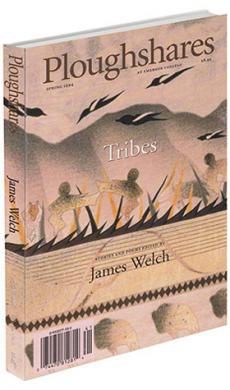rev. of Rise the Euphrates by Carol Edgarian
Rise the Euphrates
A novel by Carol Edgarian. Random House, $22.00 cloth. Reviewed by Don Lee.
It is an Armenian tradition to begin the telling of a story with the words
Gar oo chugar: There was and there was not. The phrase is repeated throughout Carol Edgarian’s exquisitely written first novel,
Rise the Euphrates, and it is a fitting refrain for this story of three Armenian-American women and the shame that both binds and divides them.
The majority of the novel portrays the coming of age of Seta Loon, but she serves as a wonderfully lyrical narrator for her family’s history as well, starting with her grandmother’s experiences in 1915, when the massacres that would kill over a million Armenians began. Nine-year-old Casard witnesses the brutal execution of her townspeople, and then she and her mother, with several hundred children and women, are forced on a march through the desert to the Euphrates River. There, they are told to jump to their deaths into the swirling water, but Casard, in a moment of innocent hesitation, abandons her mother and survives, albeit just barely — left so shocked and ashamed, she forgets her own name.
She escapes to the U.S., where she is indiscriminately renamed, and settles in Memorial, Connecticut, marries, and has a daughter. Yet hanging on to “Old Country customs” and superstitions, Casard never speaks of the massacres, which she refers to as “the Indignities,” and she instructs her progeny to follow suit: “And if asked, Where is this Armenia? Casard taught me to spit in my hand and answer,
Gunantz. Gone.” Only peripherally do her daughter, Araxie, and granddaughter, Seta, learn the secret of what Casard regards as an unpardonable betrayal — leaving her mother at the river — and her guilt casts an
anetzk, or curse, over the family. Araxie forever possesses a melancholy that makes her defy Casard and marry George Loon, a non-Armenian, an outsider, an
odar. And Seta — mystically beset with dreams and images of what happened at the Euphrates — must watch Casard and Araxie continue to provoke each other’s wrath, never able to make peace or console their grief. Ironically, it is Seta’s father, the
odar, who best understands the family’s affliction — the unimaginable choice made by the women that day in 1915 to drown their children and themselves, rather than becoming victims to the Turks, their fundamental dignity taken away, a violation that manifested itself in sadness and remained in the blood. The Armenians, in a sense, are the true
odars, for what does it mean to be an outsider but “to lose one’s country, one’s family, one’s hope.”
It becomes Seta Loon’s responsibility to end the legacy of her family’s tragedies. Thirty-three now, pregnant, unmarried, she returns to Connecticut in the novel’s epilogue to see her mother, knowing that “in families the worst betrayal is the withholding of forgiveness.”
Rise the Euphrates is an important, powerful, poignant novel. Its minor flaws in plotting — the threads of betrayal could be more cohesive; the suspense created over the recovery of Casard’s real name is misleading — are far outweighed by the book’s richness and luminous prose. Carol Edgarian’s prodigious talents as a storyteller, her ability to account what there was and was not for these Armenian Americans, should not be missed. “Our tales are what bind,” Edgarian writes in the voice of Seta Loon, “they are the spiraling — the vicious, wondrous spiraling — which, if never questioned, lock the generations in a web of infinite expectation, lies, shame, hope. For my unborn child, I am after hope. Hope, and the chance for a new story that will put to rest the lies and shame.”

